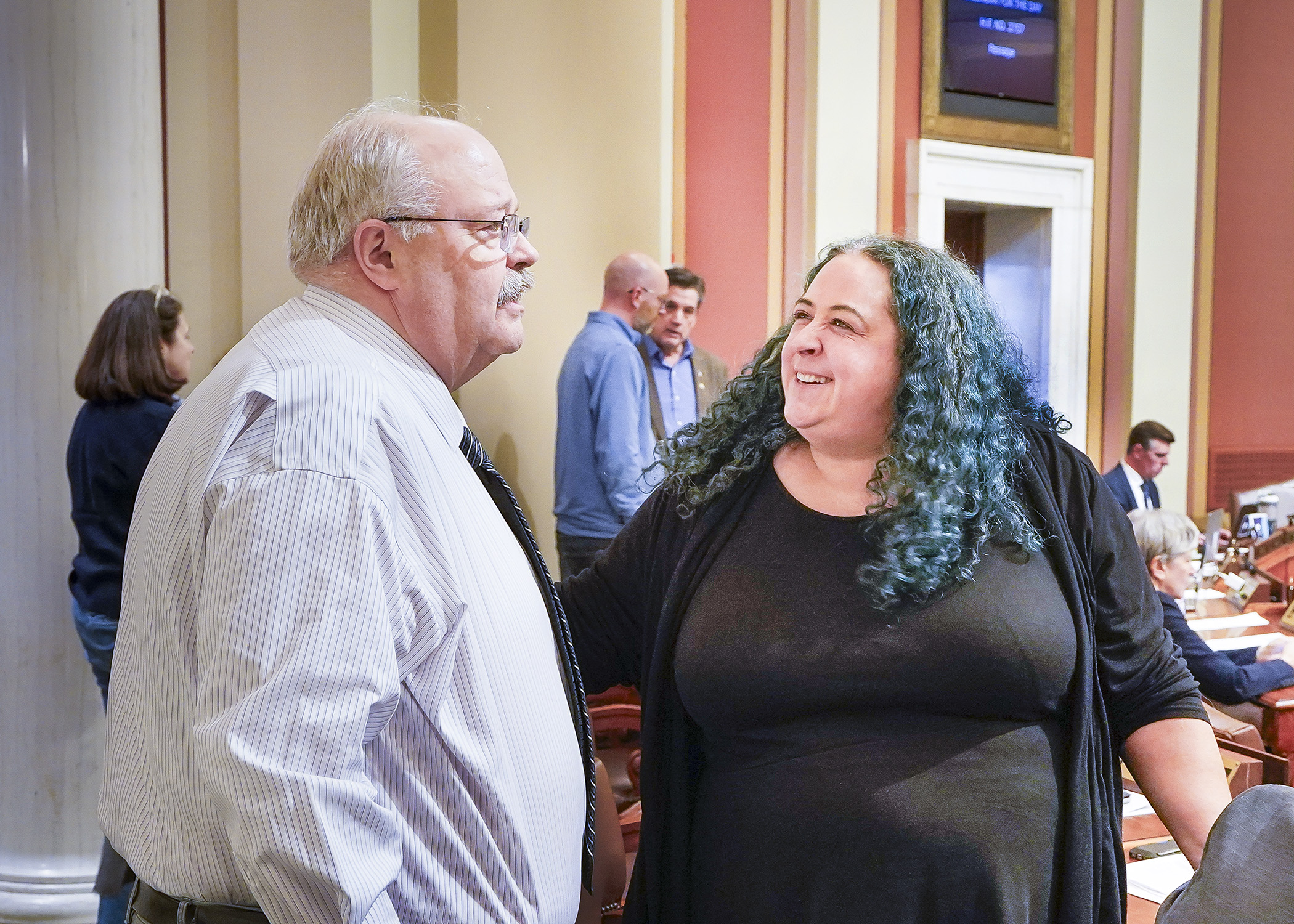House passes standard deduction remedy, sends bill to Senate

The fix may be on its way.
Last summer, the Department of Revenue found an error in the 2023 tax law that inadvertently shrunk the amount of the individual income tax standard deduction to 2019 levels, omitting four years of inflation adjustments. But legislators are hoping to remedy the problem as quickly as possible and correct the rates on the tax tables filers are using for this year’s tax forms.
So, by a 128-2 vote, the House passed HF2757 Monday and sent it to the Senate. Sponsored by Rep. Aisha Gomez (DFL-Mpls), the bill would correct the error by adjusting the standard deduction amounts for tax year 2023.
The bill would also align the definition of “Tribal Nation” in statewide local housing aid with the wording in the Tribal Nation aid program, and allow a 0.625% local sales and use tax authorization for Beltrami County approved by voters in November.
Under the bill’s proposed fix, the standard deduction amount for tax year 2023 would be $27,650 for married joint or surviving spouse filers, $20,800 for head of household filers, and $13,825 for all other filers.
The additional amount for seniors or blind taxpayers would be $1,450, or $1,850 for a taxpayer who is not married or a surviving spouse. The dependent standard deduction amount would be limited to the greater of $1,200 or the individual’s earned income plus $350. Those amounts would be adjusted for inflation beginning in tax year 2024.
Three amendments were unsuccessfully offered.
One sponsored by Rep. Greg Davids (R-Preston) was designed to correct another error in the 2023 tax law regarding the effective date for changes in recording net operating losses for business. Gomez, the House Taxes Committee chair, said the issue is addressed in a separate bill, HF3769, sponsored by Rep. Dave Lislegard (DFL-Aurora).
After the vote on HF2757, Rep. Kristin Robbins (R-Maple Grove) unsuccessfully moved to declare an urgency to consider that bill.
Also voted down were an amendment from Rep. Chris Swedzinski (R-Ghent) that would have created a small business tax credit for tax year 2022 and one from Rep. Jim Joy (R-Hawley) that would have suspended the state’s film production credit.
“I’m supporting the bill, but the NOL [net operating loss] issue isn’t just going away,” Davids said. “We should have done it and saved a lot of people money on amended tax returns.”
House Minority Leader Lisa Demuth (R-Cold Spring) agrees.
“We are breaking a promise made by the two tax chairs to fix that net operating loss provision at the earliest possible opportunity,” she said. “I’m glad that we’re saving taxpayers from the $350 million mistake, but there’s no reason to leave the net operating loss issue on the to-do list.”
Related Articles
Search Session Daily
Advanced Search OptionsPriority Dailies
Speaker Emerita Melissa Hortman, husband killed in attack
By HPIS Staff House Speaker Emerita Melissa Hortman (DFL-Brooklyn Park) and her husband, Mark, were fatally shot in their home early Saturday morning.
Gov. Tim Walz announced the news dur...
House Speaker Emerita Melissa Hortman (DFL-Brooklyn Park) and her husband, Mark, were fatally shot in their home early Saturday morning.
Gov. Tim Walz announced the news dur...
Lawmakers deliver budget bills to governor's desk in one-day special session
By Mike Cook About that talk of needing all 21 hours left in a legislative day to complete a special session?
House members were more than up to the challenge Monday. Beginning at 10 a.m...
About that talk of needing all 21 hours left in a legislative day to complete a special session?
House members were more than up to the challenge Monday. Beginning at 10 a.m...